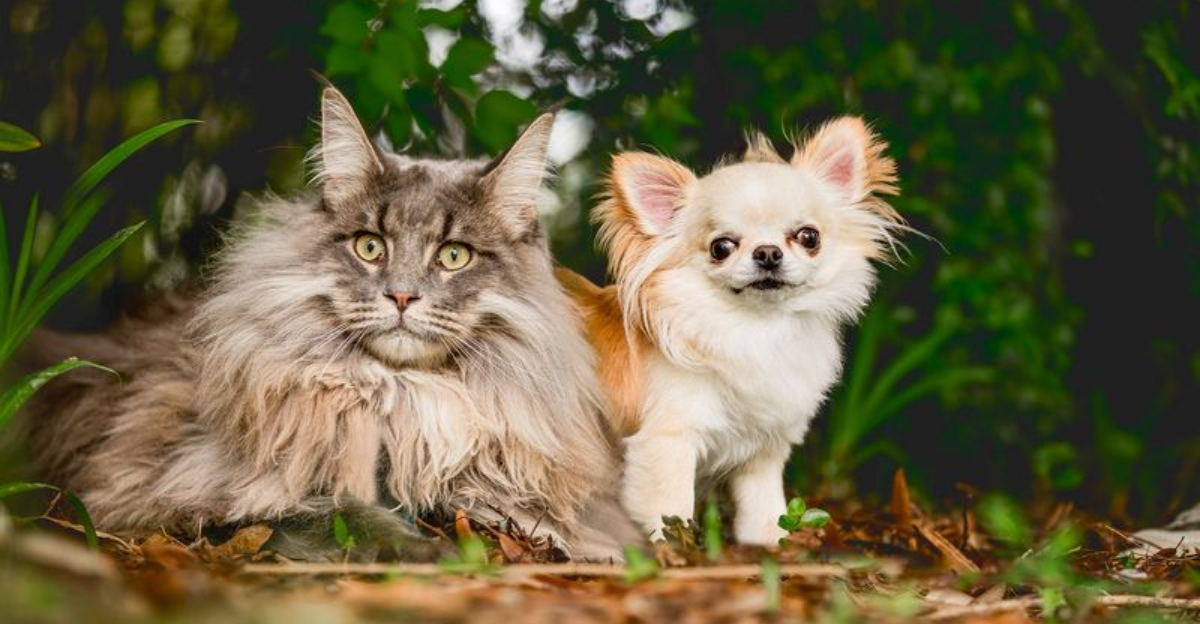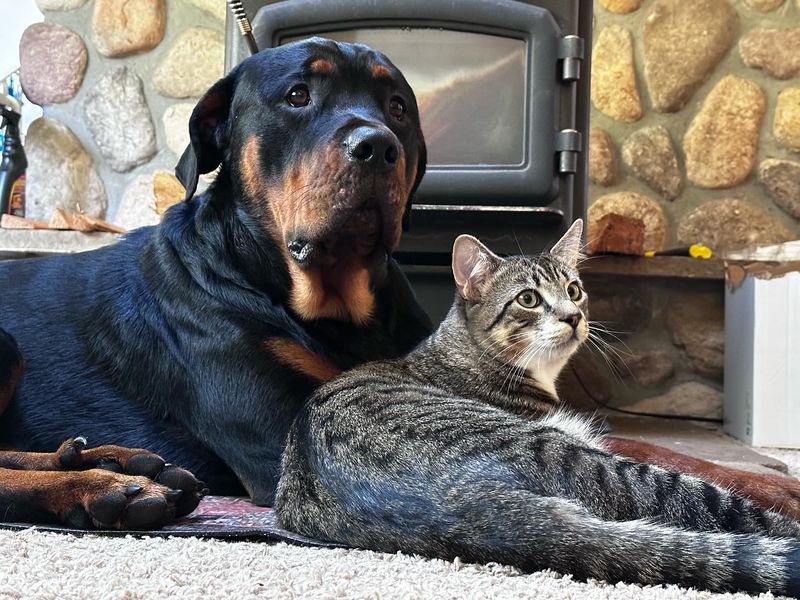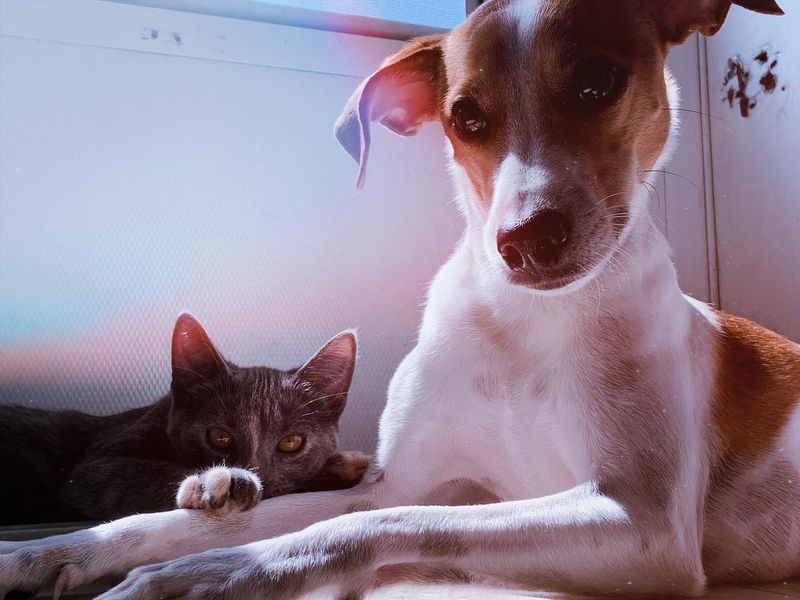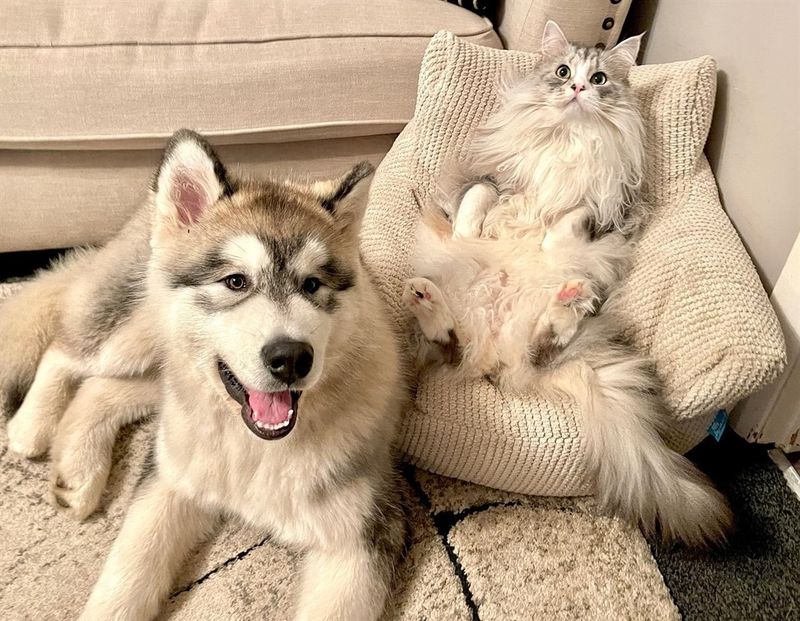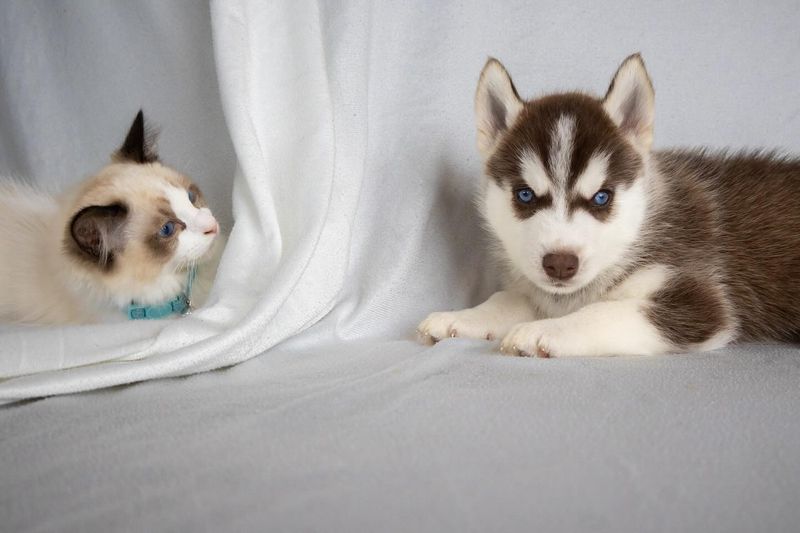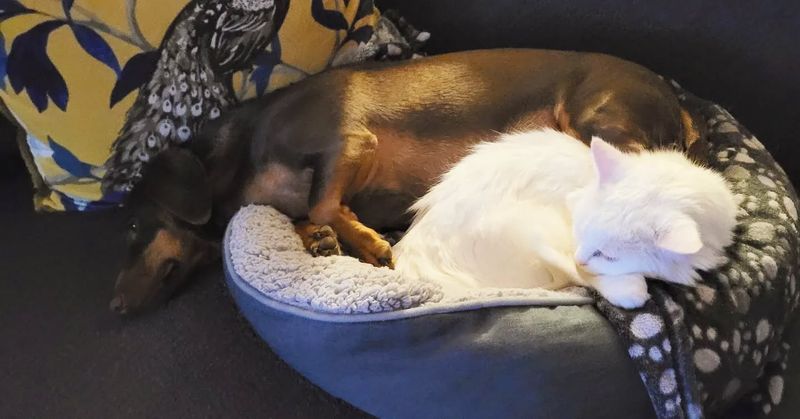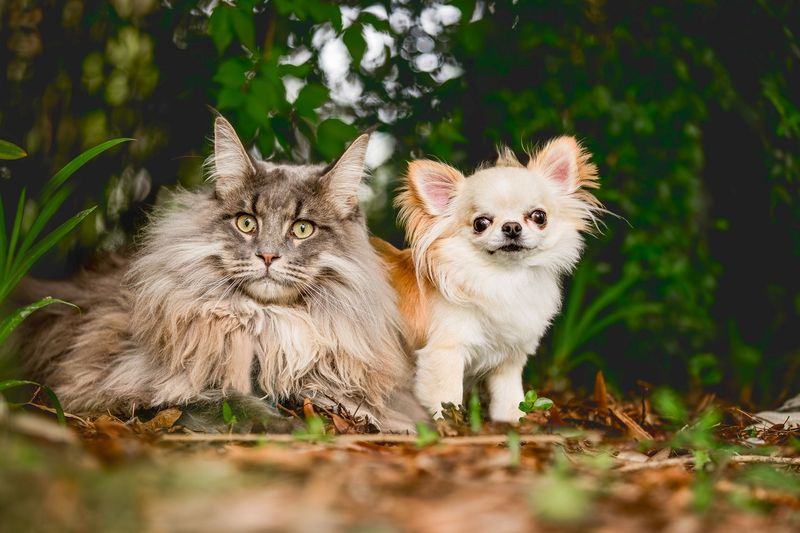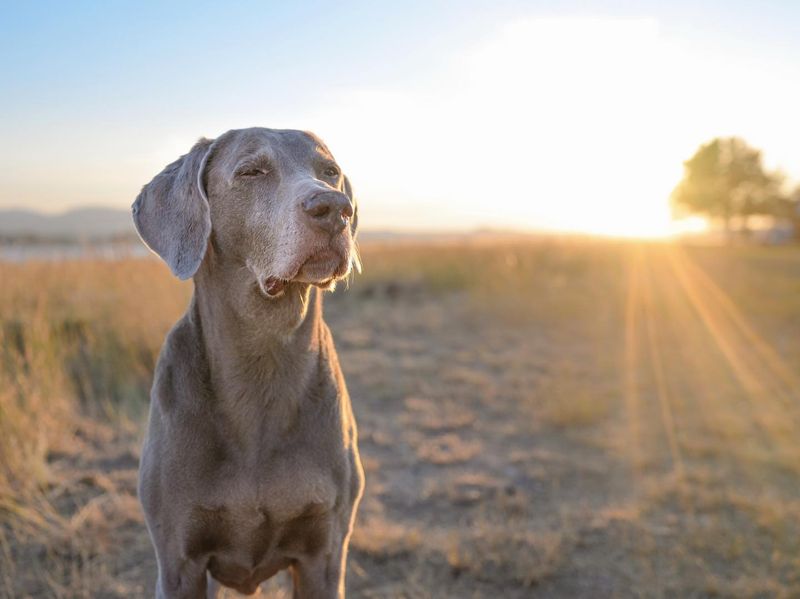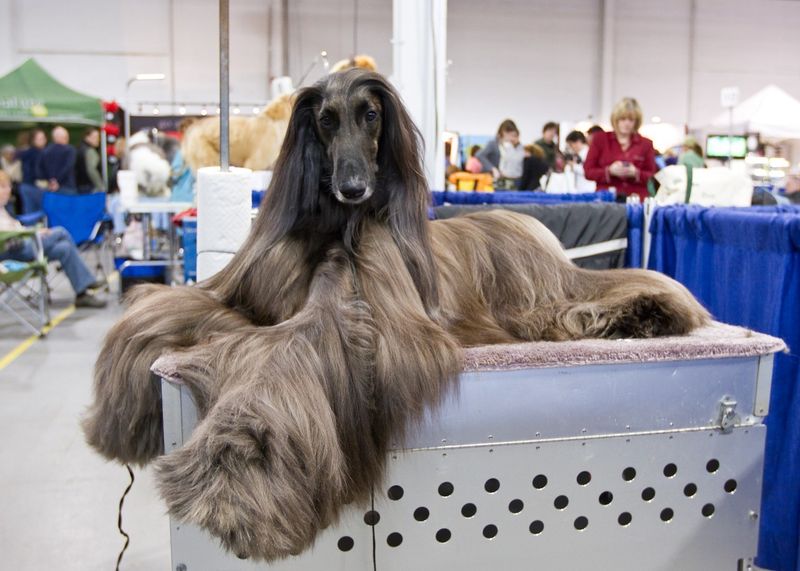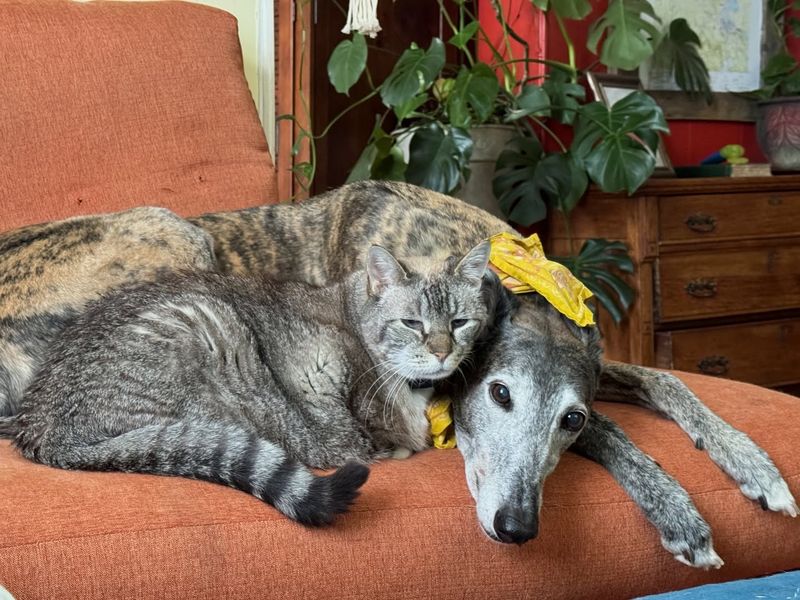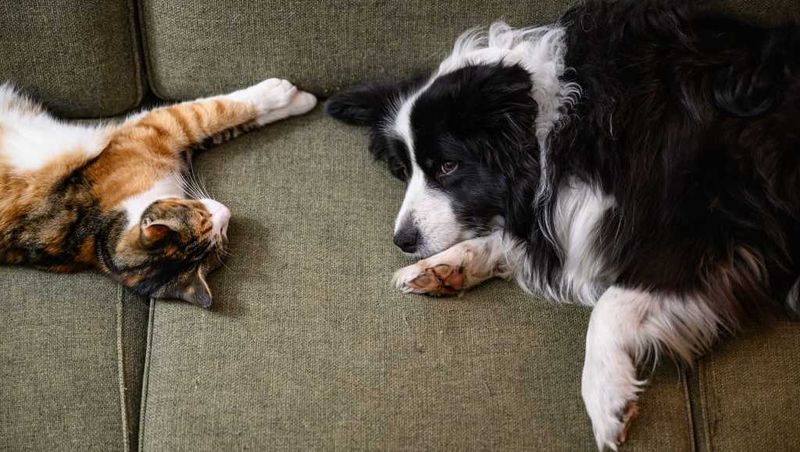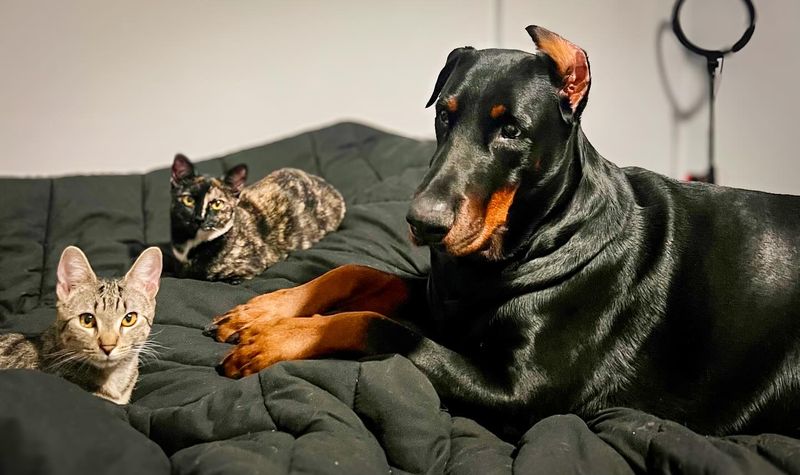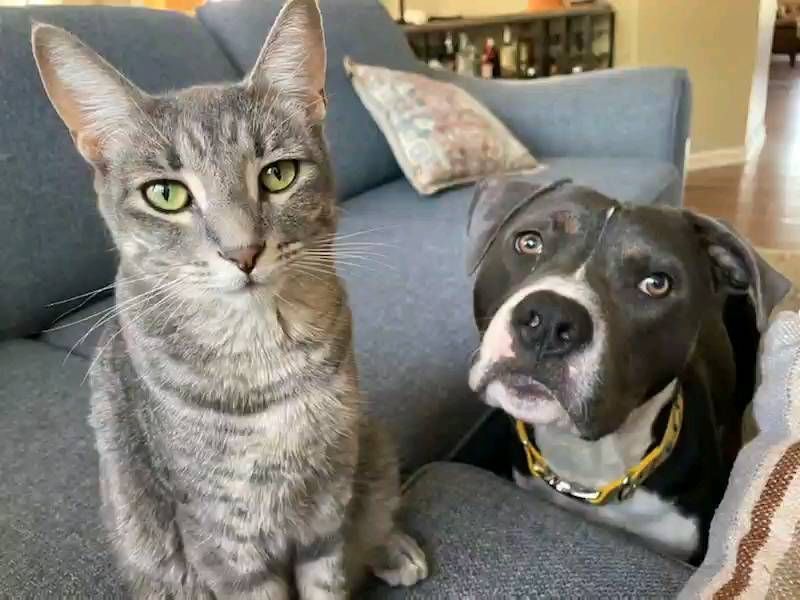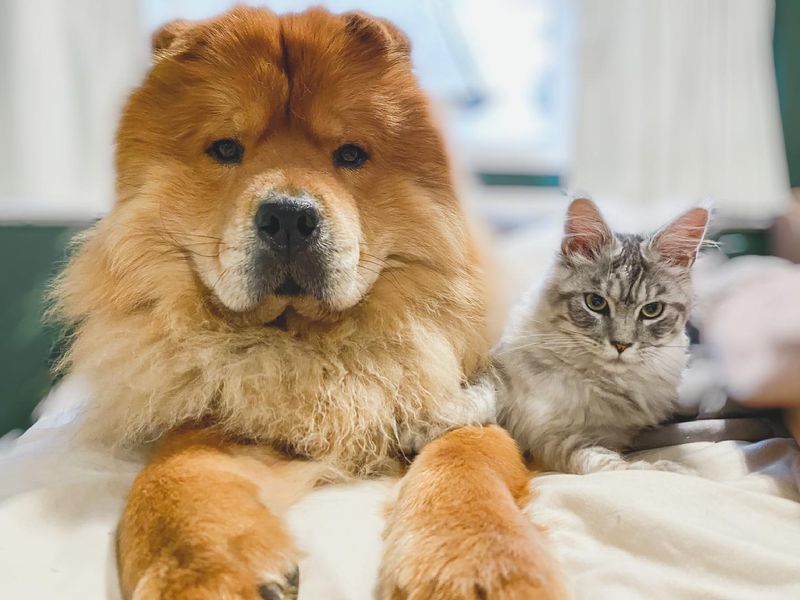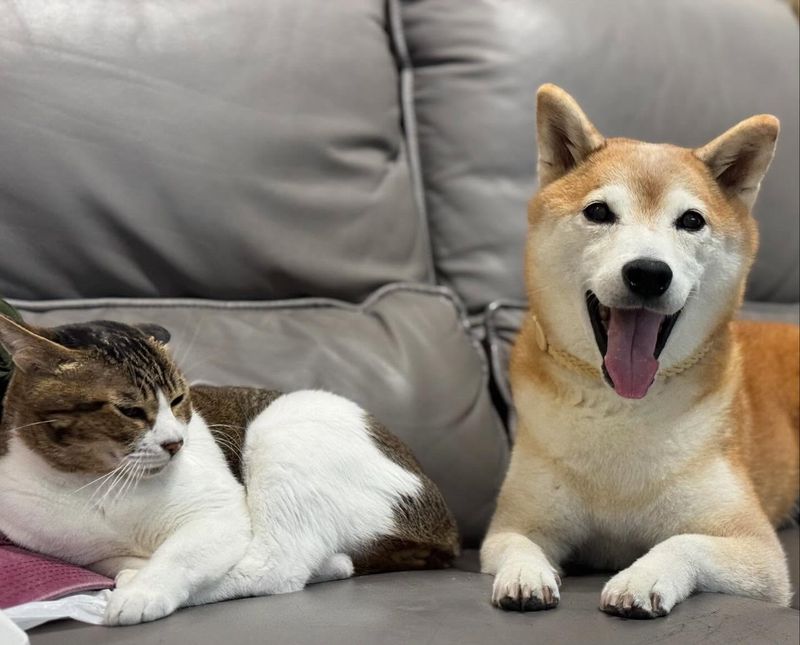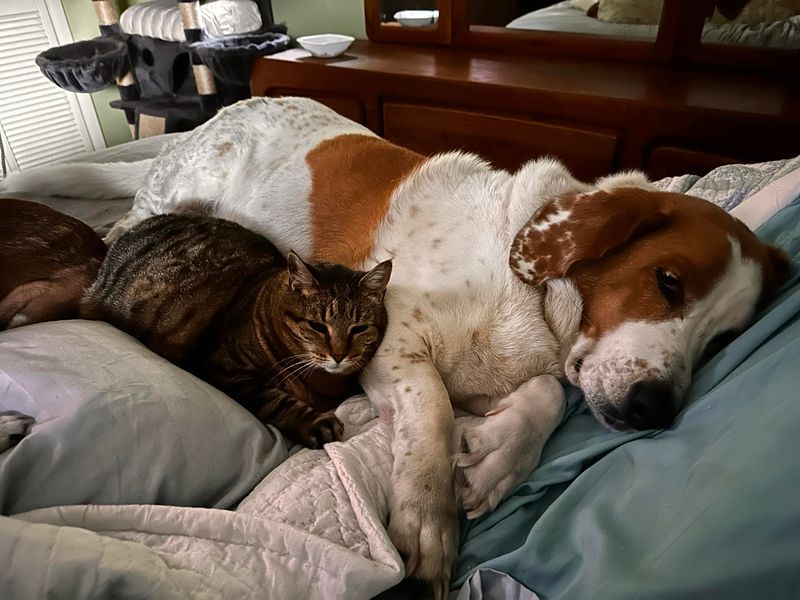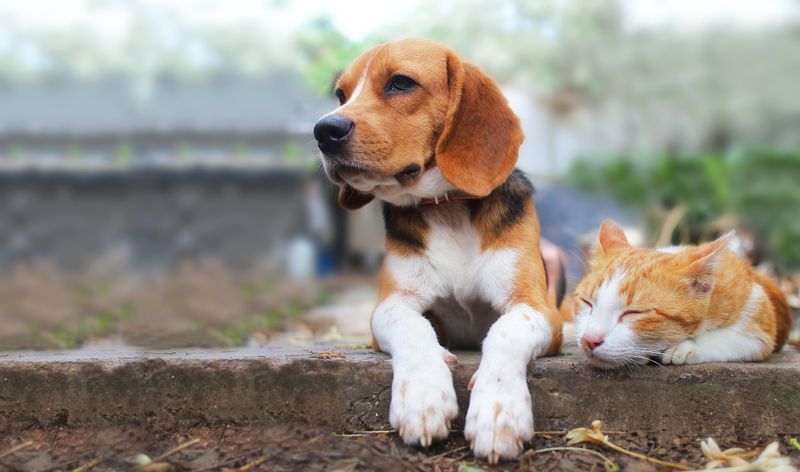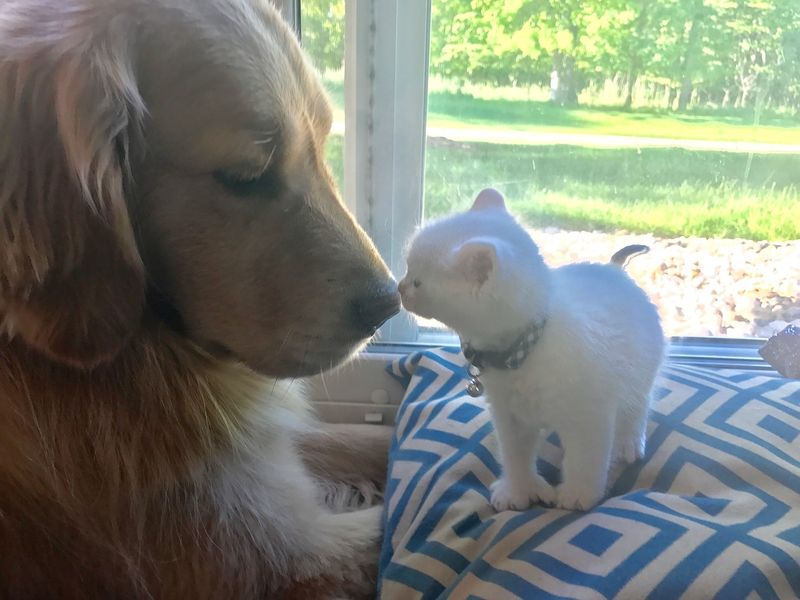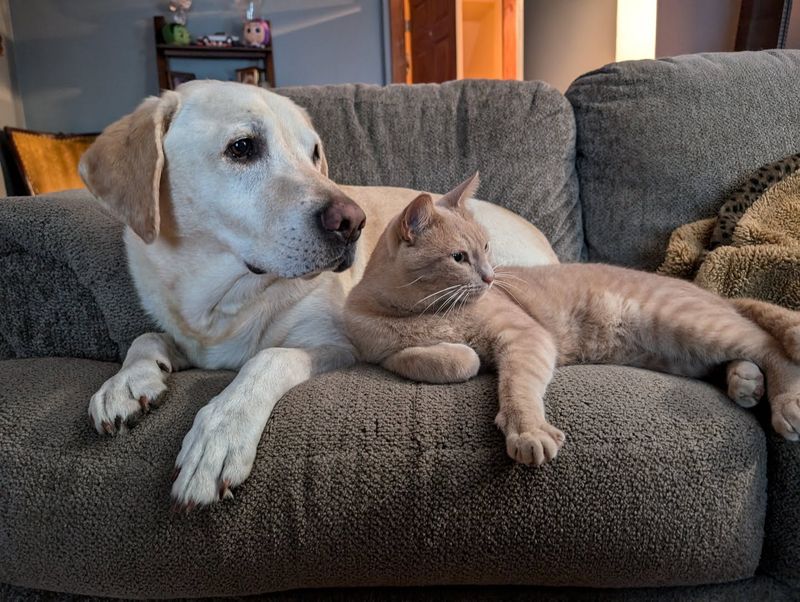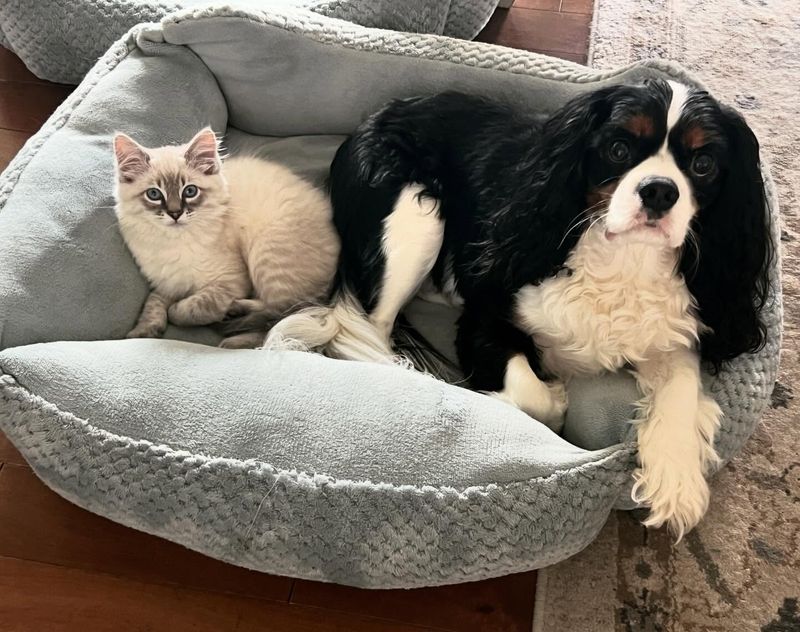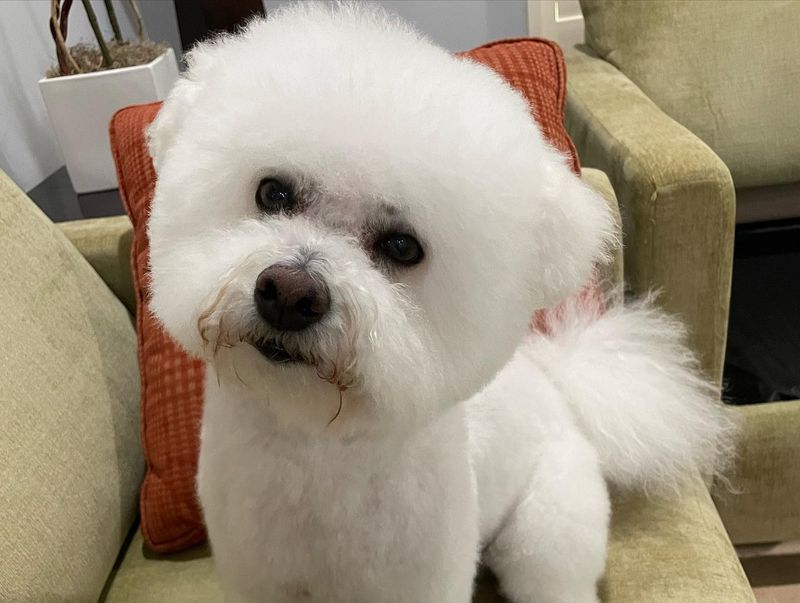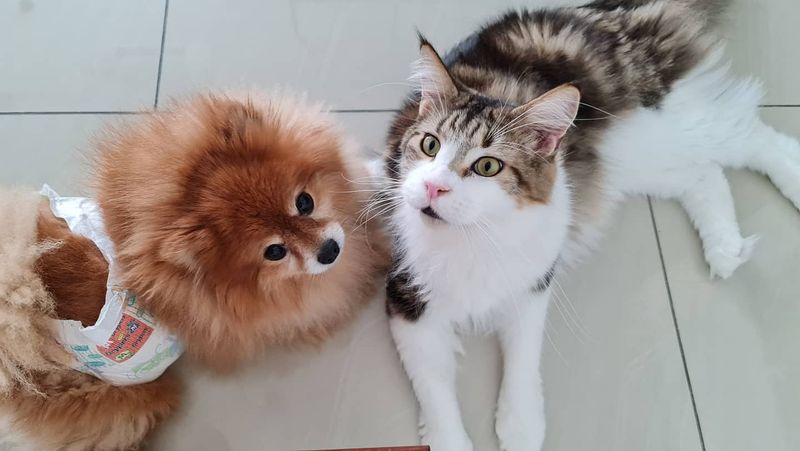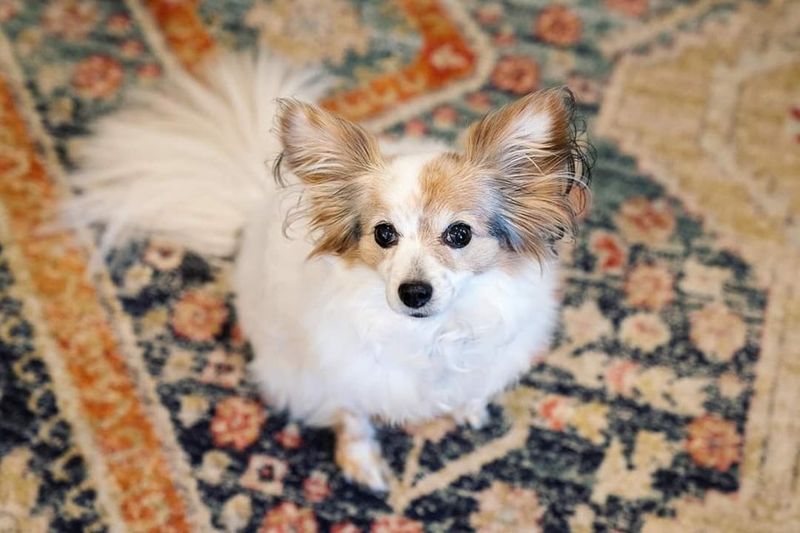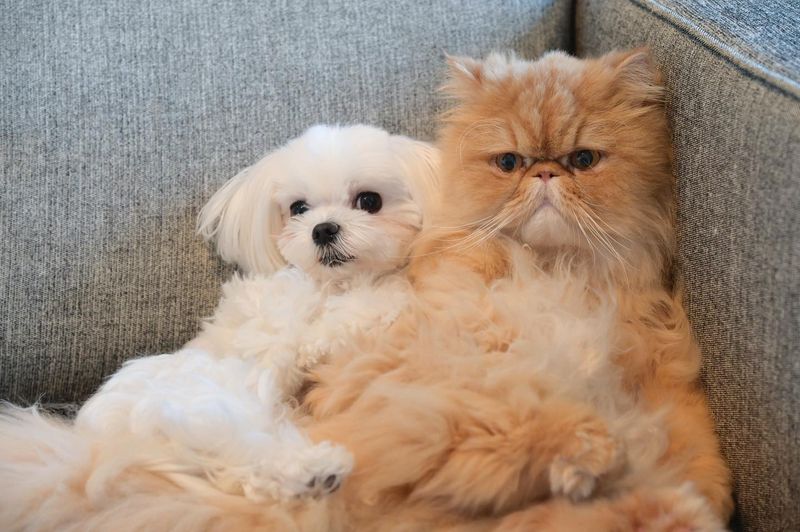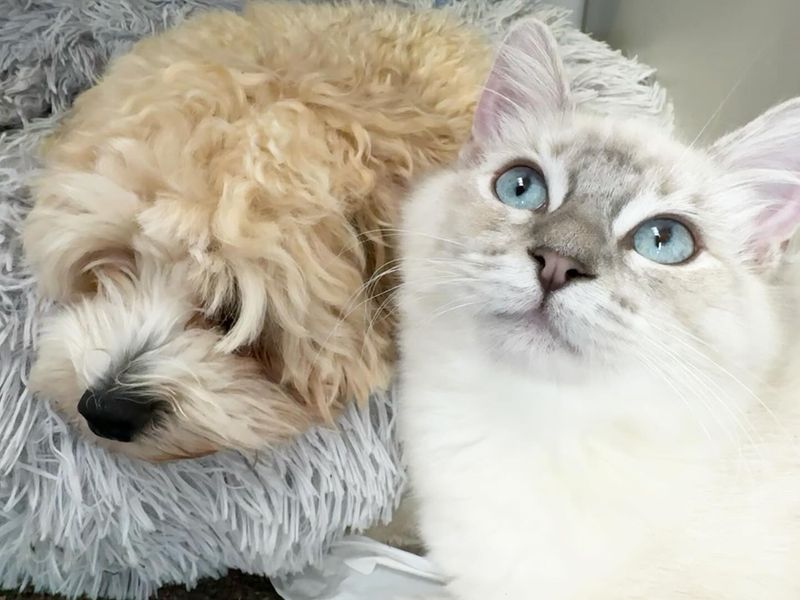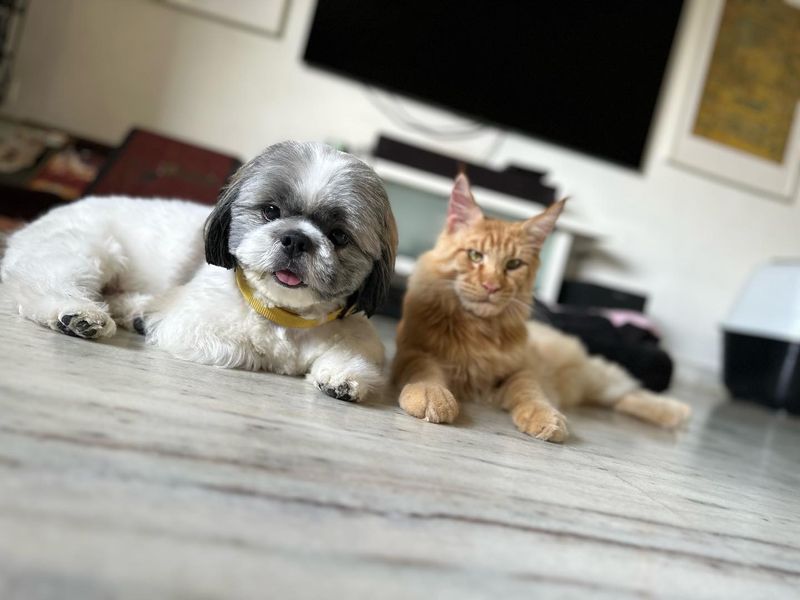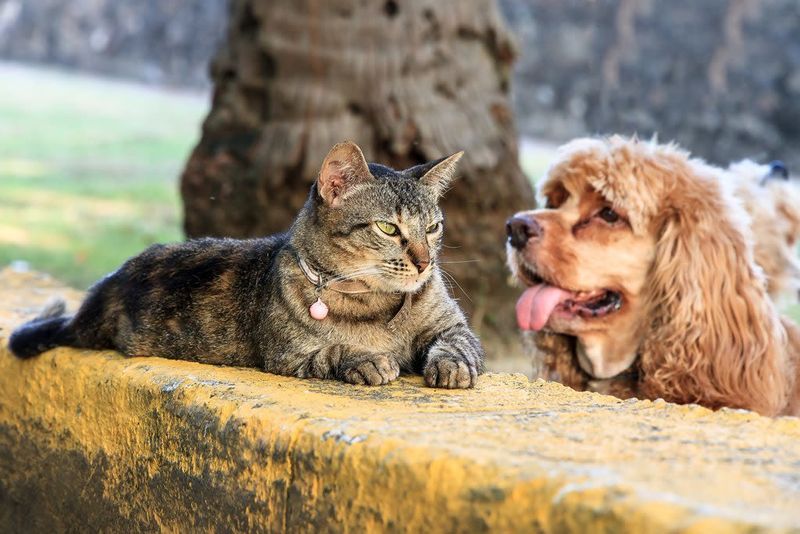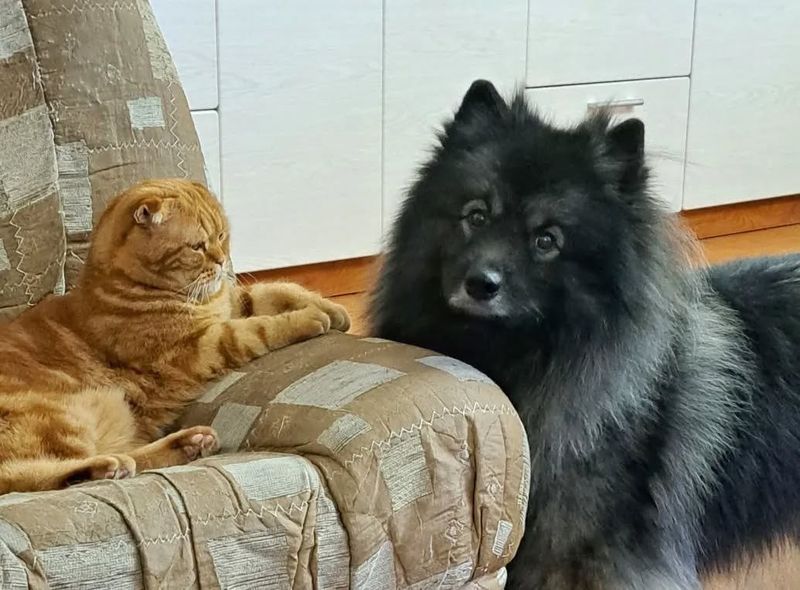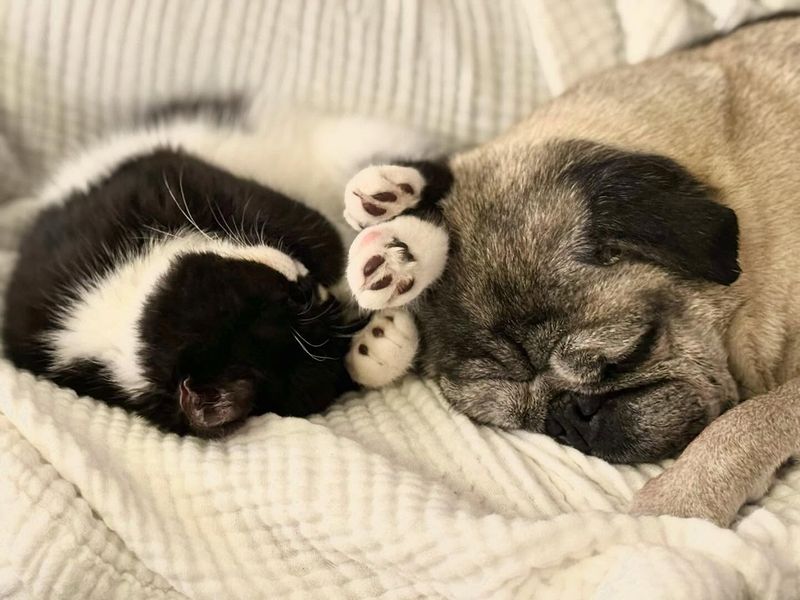Dogs and cats have long been seen as natural adversaries, yet some dog breeds defy this stereotype, forming close bonds with their feline counterparts. This article explores both sides of the spectrum: those breeds known for their disdain for cats and those that embrace them as companions.
Rottweiler
Rottweilers are strong and confident dogs, often protective of their family. Their natural instinct as guard dogs can make them suspicious of other animals, including cats. This breed tends to be assertive, which sometimes translates into chasing or confronting felines.
While they possess a loving nature towards their humans, Rottweilers may require careful introductions to cats to avoid conflicts. Their imposing size and strength mean that any interaction with cats should be supervised.
With proper socialization, some Rottweilers can learn to coexist peacefully with feline friends.
Jack Russell Terrier
The Jack Russell Terrier is a bundle of energy and curiosity, traits that can lead to spirited chases after smaller animals, like cats. Originally bred for hunting, this breed has a strong prey drive.
Their inquisitive nature and boundless energy often mean they’re on the move, making them prone to pursuing cats. A Jack Russell’s playful yet relentless nature may not sit well with a cat’s more laid-back attitude.
For peaceful cohabitation, early introductions and consistent training are essential to curb the terrier’s chasing instincts.
Alaskan Malamute
With roots as a sled dog, the Alaskan Malamute is known for its strength and endurance. This breed’s independent spirit can sometimes clash with cats, as Malamutes tend to assert their dominance.
Their pack mentality makes them loyal family members but also wary of other animals encroaching on their territory. When it comes to cats, Alaskan Malamutes may not always extend a warm welcome.
Proper socialization and training from a young age are crucial for Malamutes to peacefully share their space with felines.
Siberian Husky
Siberian Huskies are known for their striking appearance and amiable nature. However, their high energy levels and strong prey drive can make them challenging companions for cats.
Huskies are pack animals, often seeking to assert their rank, which can lead to misunderstandings with more solitary cats. Their playful nature sometimes turns too boisterous for feline friends.
To foster harmony, early socialization and training are key. Huskies need guidance to temper their excitement and learn to coexist peacefully with cats.
Dachshund
Dachshunds, with their elongated bodies and lively spirits, are known for their curiosity. Originally bred for hunting, they possess a strong prey drive, often viewing smaller animals, like cats, as targets.
Their spirited nature means they might not always appreciate a cat’s presence, leading to occasional pursuits. Dachshunds’ inquisitive behavior and tenacity can be a challenge for feline companions.
With patient training and gradual introductions, Dachshunds can learn to live alongside cats without too much fuss.
Chihuahua
Despite its petite size, the Chihuahua possesses a big personality. Known for its confidence and alertness, this dog often views cats as rivals. Its territorial nature makes it protective of its space, sometimes leading to clashes with feline housemates.
Chihuahuas are fiercely loyal to their human companions, which can make them wary of other animals, especially cats. This breed’s intense loyalty and bold attitude often create a less-than-harmonious environment when cats are around.
For households with both Chihuahuas and cats, careful management and training can help ease tensions and foster coexistence.
Weimaraner
Weimaraners are graceful and intelligent dogs, known for their hunting prowess. Their strong prey drive and alert nature can make them challenging companions for cats.
While they are affectionate with their families, Weimaraners may not tolerate the presence of felines due to their instinctual hunting behavior. Their energetic and determined personality often leads them to chase.
Proper training and socialization can help Weimaraners adjust to living with cats, but their natural instincts may still pose challenges.
Afghan Hound
The Afghan Hound is an epitome of elegance and grace, known for its long, flowing coat. Despite their regal demeanor, Afghan Hounds have a strong prey drive, which can make living with cats difficult.
Their independent nature means they often prefer solitude or the company of humans over other animals. This preference can lead to tension with feline housemates, especially if the cat is perceived as competition.
Consistent socialization and training are crucial to encourage a peaceful coexistence with cats.
Greyhound
Known for their speed and agility, Greyhounds are often associated with racing. Their impressive speed comes from a strong prey drive, making them prone to chasing smaller animals like cats.
Despite their racing background, Greyhounds are gentle and calm with their human families. However, their instinctual behavior can become problematic when living with cats.
Experienced dog owners can train Greyhounds to live peacefully with feline friends, but supervision is always recommended to ensure safety.
Border Collie
The Border Collie is renowned for its intelligence and herding skills. These traits, while exceptional, can lead to attempts to herd smaller animals, including cats.
Their sharp minds and high energy levels mean they require constant stimulation, which sometimes turns into unwanted attention towards cats. A Border Collie’s natural instinct is to control, which may not be well-received by feline companions.
With proper training and activities, Border Collies can learn to redirect their energy positively, allowing for a more harmonious household with cats.
Doberman Pinscher
Doberman Pinschers are known for their loyalty and protective instincts. Their alertness and strong stature can be intimidating to cats, creating a tense atmosphere.
As loyal guardians, Dobermans are often wary of other animals, including cats, viewing them as potential threats. Their vigilant nature requires careful management when introducing cats.
With consistent training and a calm environment, Dobermans can be taught to coexist with cats, though their watchful instincts remain strong.
American Pit Bull Terrier
The American Pit Bull Terrier, often misunderstood, is known for its strength and friendliness towards humans. However, its high energy and playfulness can sometimes be overwhelming for cats.
While Pit Bulls are affectionate, their exuberant nature often translates into rough play, which cats might find distressing. This breed’s strong personality requires careful socialization with felines.
With positive reinforcement and patient training, Pit Bulls can learn to temper their enthusiasm around cats, fostering a more peaceful coexistence.
Chow Chow
Chow Chows are known for their lion-like appearance and independent nature. Their aloof demeanor often means they prefer solitude over the company of other animals, including cats.
This breed’s strong-willed personality can lead to territorial disputes with cats, as Chow Chows often assert dominance. Their reserved nature may create an unwelcoming environment for feline housemates.
Proper training and early socialization are key to helping Chow Chows adapt to living with cats, though patience is essential.
Shiba Inu
Shiba Inus are known for their spirited and independent personalities. Their strong-willed nature often leads to a competitive dynamic with cats, viewing them as rivals.
This breed’s alertness and territorial instincts can create challenges when living alongside cats. Shibas often prefer their space, leading to friction with feline companions.
With early socialization and clear boundaries, Shiba Inus can learn to share their home with cats, though their independence remains a defining trait.
Basset Hound
Basset Hounds are distinguished by their droopy ears and melancholy expressions. Their scent-driven nature sometimes leads them to investigate every corner, including areas occupied by cats.
Although generally good-natured, their curiosity can occasionally unsettle feline friends. Basset Hounds’ leisurely pace and easygoing demeanor mean they rarely pursue cats aggressively.
With patient introductions and reinforcement, Basset Hounds can adapt to life with cats, though their investigative nature remains constant.
Beagle
Beagles are known for their friendly and curious nature, often following their noses wherever scents lead. This inquisitive trait can sometimes cause friction with cats, as Beagles tend to be persistent explorers.
Their sociable personality means they generally get along well with other animals, but their relentless curiosity might annoy more reserved feline companions. Beagles’ playful nature often requires gentle management.
Through consistent training and exposure, Beagles can become more disciplined around cats, ensuring a harmonious living situation.
Golden Retriever
Golden Retrievers are celebrated for their gentle and friendly demeanor. Their amiable nature makes them excellent companions for cats, as they generally exhibit patience and understanding.
Their affinity for social interaction extends to felines, often creating a bond of mutual respect. Golden Retrievers’ easygoing personality can help ease any initial tensions with cats.
Consistent socialization helps maintain this harmonious relationship, allowing both dogs and cats to enjoy each other’s company.
Labrador Retriever
Labrador Retrievers are known for their outgoing and gentle nature, making them ideal companions for cats. Their friendly disposition means they’re more likely to accept cats as part of the family.
This breed’s playful yet calm demeanor fosters an environment of trust, allowing cats to feel at ease. Labradors’ adaptability often leads to strong bonds with feline housemates.
Through patience and positive interactions, Labrador Retrievers and cats can form lasting friendships, sharing their home in peace.
Cavalier King Charles Spaniel
Cavalier King Charles Spaniels are known for their gentle and affectionate nature, often forming close bonds with cats. Their calm demeanor allows for peaceful coexistence, as they rarely exhibit aggression.
This breed’s loving personality means they’re more likely to seek companionship rather than conflict with cats. Cavaliers’ sociable nature creates a harmonious environment for both pets.
With consistent socialization, Cavaliers and cats can share a home peacefully, enjoying each other’s company without issue.
Bichon Frise
Bichon Frises are small, cheerful dogs known for their playful nature. Their friendly disposition often extends to cats, making them suitable companions.
This breed’s joyful and sociable personality means they enjoy interacting with feline friends, creating a lively and engaging environment. Bichons’ playful antics often entertain both humans and cats alike.
With positive reinforcement and mutual play, Bichon Frises and cats can form a delightful friendship, enriching each other’s lives.
Pomeranian
Pomeranians, with their vibrant personalities and fluffy coats, are often open to forming bonds with cats. Their lively nature is balanced by a sense of curiosity, leading to friendly interactions.
This breed’s adaptability allows them to coexist peacefully with feline companions, especially when introduced early. Pomeranians’ bright demeanor often means they approach cats with interest rather than hostility.
Through socialization and mutual companionship, Pomeranians and cats can enjoy a harmonious household together.
Papillon
Papillons are lively little dogs with an affectionate nature. Known for their distinct butterfly-like ears, they often charm both humans and cats alike.
This breed’s playful and gentle disposition makes them excellent companions for cats, as they tend to avoid aggression. Papillons’ friendly nature encourages positive interactions with their feline housemates.
With mutual respect and careful introductions, Papillons and cats can enjoy a joyful and peaceful coexistence, enhancing each other’s lives.
Maltese
Maltese dogs are characterized by their serene and gentle demeanor, making them ideal companions for cats. Their small size and calm nature allow them to coexist harmoniously with felines.
This breed’s affectionate personality means they’re likely to form strong bonds with cats, often sharing spaces without conflict. Maltese dogs’ peaceful presence creates a welcoming environment for cats.
Through patient interaction and shared relaxation, Maltese and cats can develop a rewarding companionship.
Havanese
Havanese dogs are known for their social and affectionate nature, often enjoying the company of cats. Their friendly disposition means they adapt well to feline friends.
This breed’s playful yet gentle character creates a smooth transition for cats to feel comfortable. Havanese dogs’ warmth fosters a sense of camaraderie with their feline companions.
With nurturing and encouragement, Havanese and cats can form enduring friendships, sharing joyful moments together.
Shih Tzu
Shih Tzus are known for their charming and gentle presence, often forming bonds with cats. Their calm and composed nature means they’re less likely to provoke tension.
This breed’s friendly demeanor makes them approachable companions for cats, fostering an atmosphere of mutual respect. Shih Tzus’ peaceful personality helps ease any initial apprehensions.
Through shared spaces and respectful interaction, Shih Tzus and cats can enjoy a tranquil coexistence, enhancing each other’s daily lives.
Cocker Spaniel
Cocker Spaniels are known for their affectionate and sociable nature, making them excellent companions for cats. Their gentle disposition encourages positive relationships with feline friends.
This breed’s love for companionship means they’re often welcoming towards cats, creating an inclusive environment. Cocker Spaniels’ playful yet considerate nature fosters mutual respect.
With nurturing and shared experiences, Cocker Spaniels and cats can create a harmonious home, enriching each other’s lives with affection.
Keeshond
Keeshonds are known for their cheerful and warm-hearted demeanor, often forming bonds with cats. Their friendly nature makes them approachable and inviting companions.
This breed’s playful spirit and sociability mean they adapt well to living with feline friends, often engaging in mutual play. Keeshonds’ lively personality creates an environment of fun and companionship.
Through shared activities and nurturing interaction, Keeshonds and cats can develop a delightful and enduring friendship.
Pug
Pugs are known for their charming and laid-back demeanor, often enjoying the company of cats. Their friendly personality means they are less likely to engage in conflicts.
This breed’s easygoing nature and playful attitude make them welcoming companions for feline housemates. Pugs’ adaptability allows for harmonious coexistence.
Through shared relaxation and gentle interaction, Pugs and cats can enjoy a peaceful and loving relationship, enriching each other’s lives.
